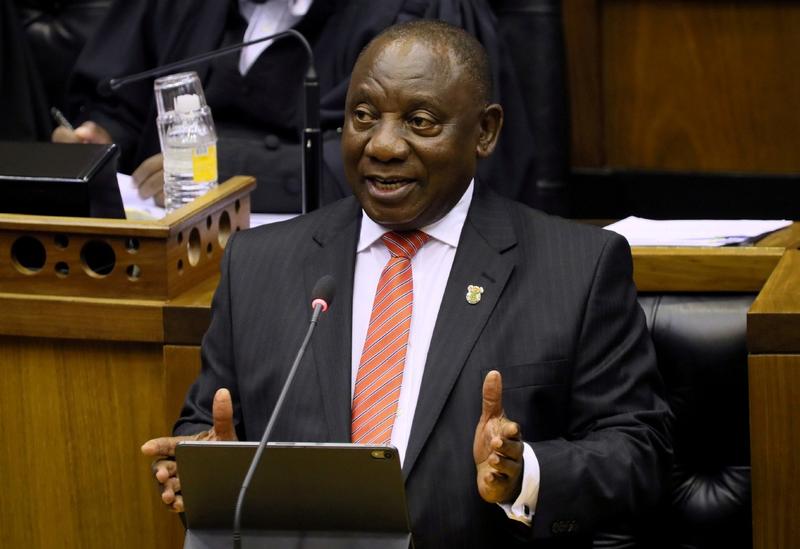 African Union Chair President Cyril Ramaphosa delivers a speech in Cape Town, South Africa, on Feb 13, 2020. (SUMAYA HISHAM / POOL PHOTO VIA AP, FILE)
African Union Chair President Cyril Ramaphosa delivers a speech in Cape Town, South Africa, on Feb 13, 2020. (SUMAYA HISHAM / POOL PHOTO VIA AP, FILE)
African Union leaders have resolved to press ahead with the start of a continentwide free-trade agreement next month.
In a virtual meeting on Saturday, the bloc's heads of state and government underscored the urgency for member states to begin trading activities under the African Continental Free Trade Area, or AfCFTA, on Jan 1.
The free-trade area, which is one of the flagship projects of Agenda 2063, Africa's master plan for transforming the continent into an economic powerhouse, will create a single continental market for goods and services, with the free movement of business people and investments.
ALSO READ: 49 African Union members sign free trade pact
To support this, we must strengthen women’s participation in the continental economy
Cyril Ramaphosa, South Africa’s president
Fifty-four countries have signed the agreement ushering in the pact. Thirty-four of them have deposited their instruments of ratification. Additionally, 41 countries and customs unions have submitted their tariff offers, including the East African Community and the Economic Community of West African States.
At the virtual meeting, African Union Chair President Cyril Ramaphosa said the start of the free-trade area will mark the clearest affirmation yet that Africa is determined to take charge of its own destiny.
Ramaphosa, who is also South Africa's president, said the success of the venture will rest on harnessing the energies of African's citizens.
Ramaphosa said the agreement will boost intra-African trade, promote industrialization and competitiveness, contribute to job creation, and unleash regional value chains that will facilitate the continent's meaningful integration into the global economy.
Empowerment of women
This is in addition to improving the prospects of Africa as an attractive investment destination, helping advance the empowerment of African women by improving their access to trade opportunities, and expanding the productive capacity of the participating countries.
"To support this, we must strengthen women's participation in the continental economy by ensuring there is greater public procurement earmarked for women-owned businesses," he said. "We must ensure that there is sufficient support given to women-owned small, medium and micro enterprises and cooperatives in both local and regional economies."
READ MORE: AU summit ends with pledge to focus on Africa welfare
Moussa Faki Mahamat, the chairperson of the AU Commission, said implementation of the free-trade area will enable the fulfillment of a dream advanced by the founding fathers of the Organization of African Unity who always wanted to see an African common market.
Wamkele Mene, secretary-general of the AfCFTA, said that for the project to ensure shared growth across the continent, women, the young and those running small and medium-sized enterprises have to be at the heart of its implementation.
"In this regard, we shall partner with the United Nations Development Programme to ensure that the free-trade area contributes to the achievement of sustainable development goals," Mene said. He also said that integration will be difficult.
Headquartered in Ghana's capital Accra, the trade zone will be the world's largest by number of nations.
edithmutethya@chinadaily.com.cn


